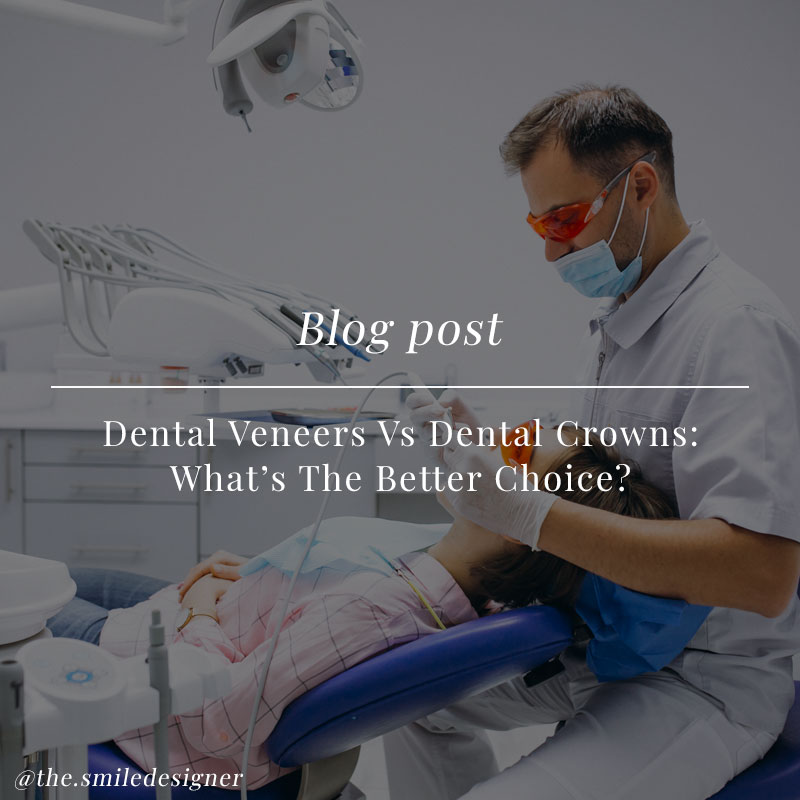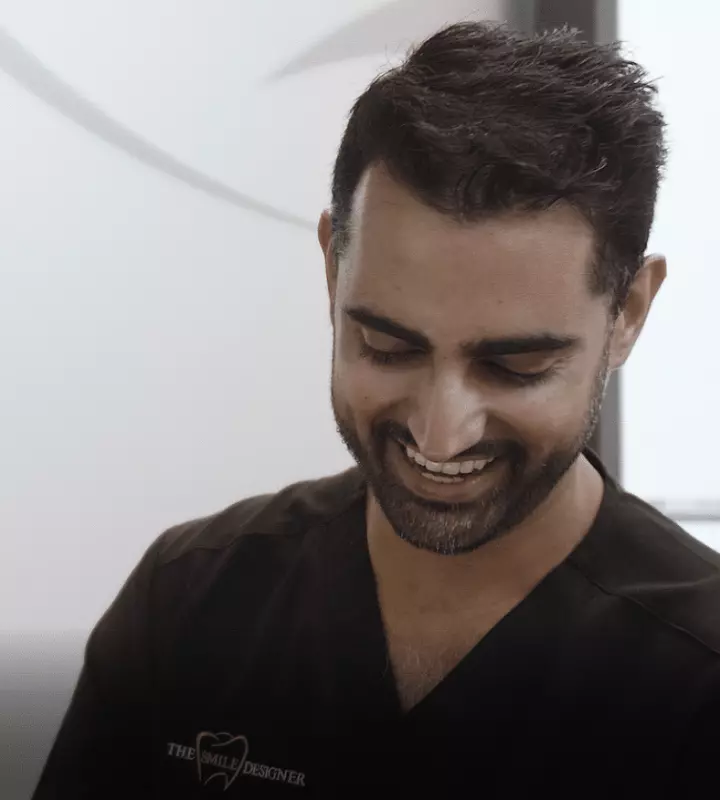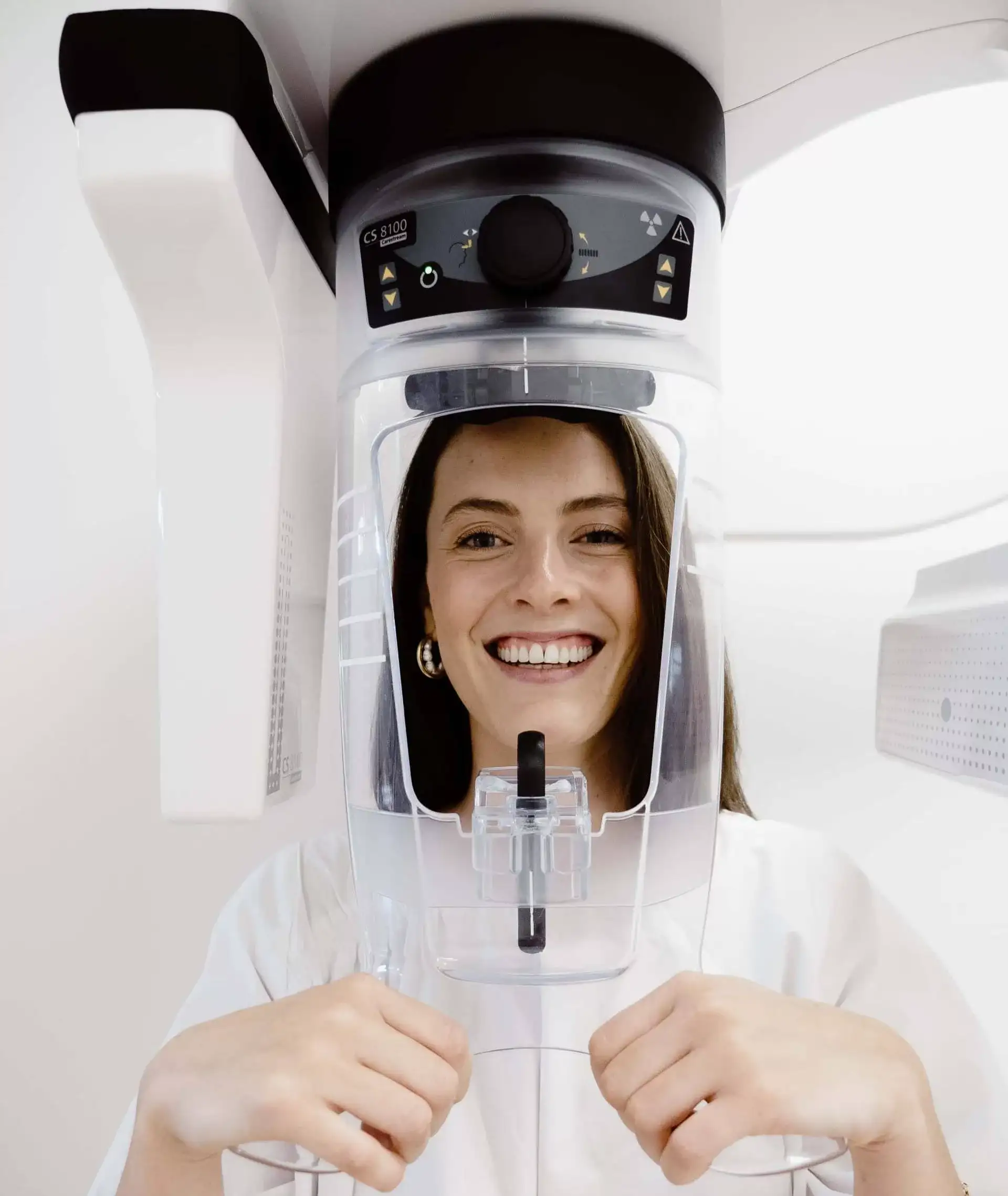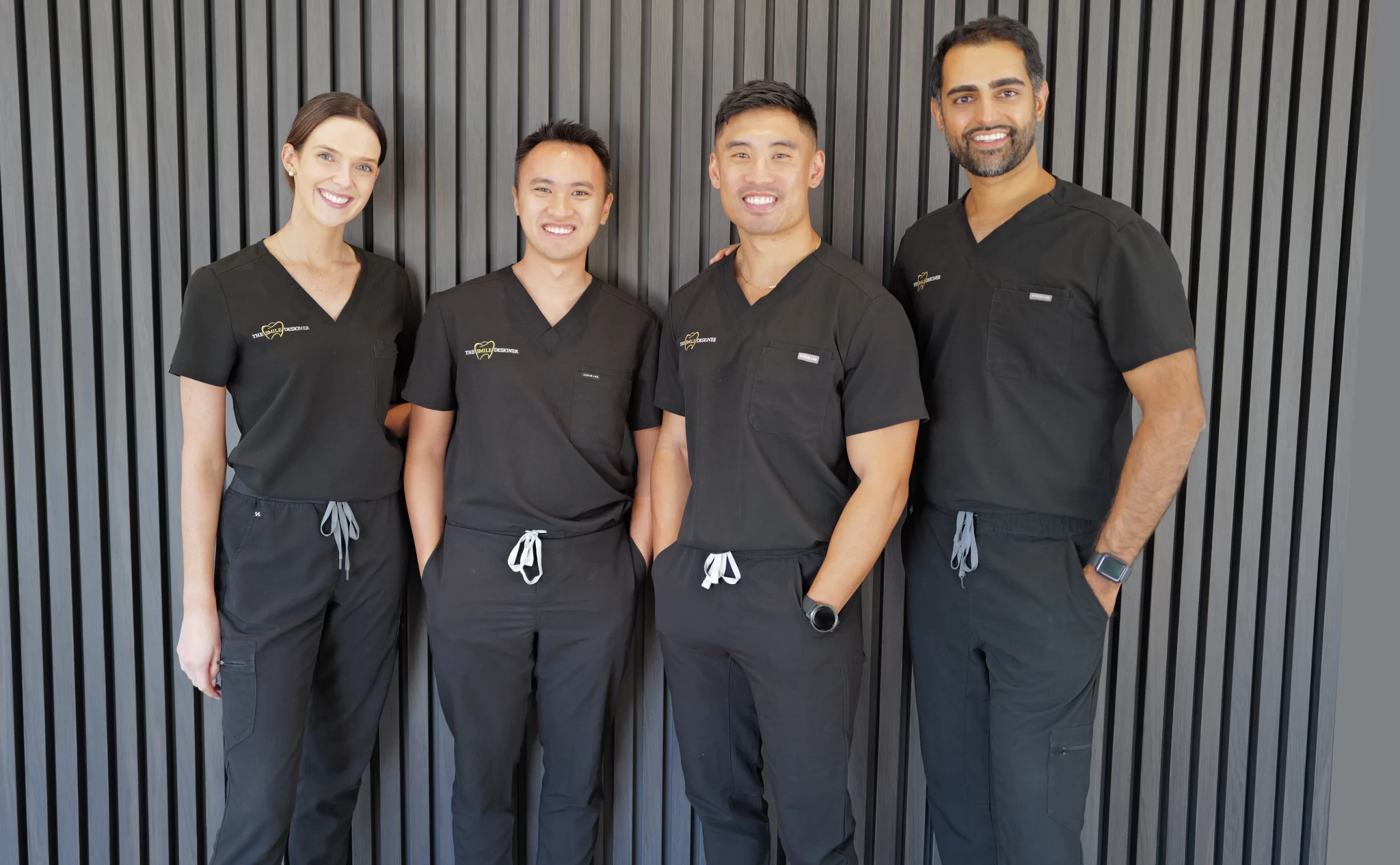Porcelain Veneers
Dental Veneers Vs Dental Crowns: What’s The Better Choice?
Many cosmetic procedures at dentists are available to the consumer to ensure their teeth look and function at their best. Veneers and crowns are two popular forms of restoration for your smile. Both are effective forms of treatment and beneficial to oral health.While they have similarities, their main difference is that a crown covers the whole tooth, whereas veneers only cover the front. Each has high patient success rates and covers those imperfections that concern you.In this article, we look at the two so you can determine the better choice for your cosmetic dentistry in Melbourne.
Why Choose Veneers or Crowns?
Before we look at the differences, why do patients choose to undergo oral restoration procedures? Common reasons include:
- Crooked smile
- Chipped, broken, or cracked teeth
- Discolouration and staining
- Gaps
- Weakened or decayed teeth
- Had a negative response to teeth whitening
- and more.
01
Porcelain Dental Veneers
What Are Porcelain Veneers?
Porcelain veneers are custom-made, thin shells of porcelain that are designed to cover the front surface of teeth. They are a cosmetic dental solution used to enhance the appearance of teeth affected by staining, discoloration, chips, or minor misalignment. Veneers can create a brighter and more aesthetically pleasing smile.
Dental veneers are available in various materials, yet the most popular is porcelain. The procedure includes bonding a thin layer of porcelain to each tooth, changing its texture, colour, shape and overall appearance.Undergoing this cosmetic dentistry requires minimal teeth reshaping and can be placed on one tooth or multiple, depending on your needs. The natural structure of your smile is kept intact but also creates a life-changing, uniform look for many. When patients undergo this form of treatment, the usual procedure includes:
- Undergoing local anaesthesia for numbing
- Digital scans
- Preparation of custom porcelain veneers
Once the master ceramists finish preparation, usually within 2-3 weeks, you will then experience:
- Cement the veneers
- Polish & etch the surface of your teeth
- Bond and place on existing teeth.
These procedures are completed over several appointments and will be discussed at your initial appointment.
02
Dental Crowns
What Are Dental Crowns?
Dental crowns, often referred to as “caps,” are tooth-shaped restorations placed over a damaged or decayed tooth. They serve to restore the tooth’s shape, strength, and appearance. Crowns are commonly employed to protect weak teeth, especially after root canal treatments, or to address severe tooth damage.
Similarly, crowns are also a covering for your teeth. However, it is used more when there is a structural issue and protects the remaining tooth. This treatment surrounds the whole area to ensure the tooth with the problem isn’t damaged further or needs pulling.While this isn’t a cosmetic procedure as such, we still best match the porcelain in colour and texture to ensure they look natural compared to the remainder of your smile.
This procedure is often used to cover teeth that have decayed, have large fillings or for added protection after a root canal.When you choose dental veneers, you can expect to need two appointments; for the first appointment, you can expect:
- Preparation and shaping of the teeth
- Add a temporary covering
- See whether the fit is right.
On your second and last visit, the dentist will:
- Removes the temporary covering
- Cleans the teeth
- Applies permanent covering
- Checks the fit.
Your dentist and hygienists will also discuss how to best care for your teeth and get longevity out of the procedure.
03
Differences Between Veneers & Dental Crowns in Melbourne
While they have differences, these cosmetic procedures depend on your immediate needs and how you can best preserve your teeth. Some of the differences between the two include:
Dental Veneers Pros:
- Less invasive than dental crowns
- Leaves more of the tooth intact
- It lasts between 10-15 years
- Look aesthetically pleasing
- Minimal tooth movement
Dental Veneers Cons:
- More of your natural tooth is exposed
- Are not reversible
- Unlikely to be covered by health insurance
Dental Crowns Pros:
- The whole tooth is covered
- Look and feel natural
- Permanent
- Some of the costs may be covered by health insurance
Dental Crowns Cons:
- A lot of natural tooth is removed
- May experience gum and tooth sensitivity
- Can be damaged over time
Each restoration has its own set of advantages and disadvantages, including factors like durability, appearance, and preservation of natural tooth structure.
04
Let’s Talk Costs!
Dental Veneers Cost
On average, veneers can cost anywhere between $1,800 to $2,500 per tooth. This will vary depending on material type, with porcelain being more expensive yet more effective than composite materials, which are much cheaper at $250 to $1500 per tooth.
Dental Crowns Cost
Alternatively, crowns vary in price depending on material type, but usually between $1,800 to $2,500 per tooth. It’s essential to note that this price doesn’t include other associated procedures, such as a root canal.Most practices, including The Smile Designer Melbourne, have payment options to suit your needs and enable you to get the treatment at the time that you require.
Veneers vs Crowns: How Are They Similar?
Both veneers and crowns are dental restorations aimed at improving the appearance and function of teeth. They can be customsed to match the color, shape, and size of your natural teeth, providing a harmonious and natural look
Veneers vs Crowns: How Are They Different?
Is a Veneer or Crown Right for Me?
Can Crowns and Veneers be Combined?
Risks of Veneers and Crowns
Procedure for Porcelain Veneers:
- Consultation: The process begins with a consultation with your dentist. During this appointment, you’ll discuss your goals and expectations for veneers. Your dentist will examine your teeth, take X-rays if necessary, and determine whether veneers are the right choice for you.
- Tooth Preparation: To prepare your teeth for veneers, a small amount of enamel (the outer layer of your tooth) is typically removed from the front surface of the teeth receiving veneers. This is done to create space for the veneers and ensure a natural fit.
- Impressions: After tooth preparation, your dentist will take impressions of your teeth. These impressions are used to create custom veneers that match the size, shape, and color of your natural teeth.
- Temporary Veneers: While your permanent veneers are being fabricated in a dental lab (which can take a couple of weeks), you may be fitted with temporary veneers to protect your prepared teeth.
- Veneer Bonding: Once the custom veneers are ready, you’ll return to the dentist’s clinic for the bonding procedure. Your dentist will place the veneers on your teeth temporarily to ensure they fit perfectly and match your expectations. Adjustments can be made at this stage.
- Bonding: When you are satisfied with the fit and appearance of the veneers, they will be permanently bonded to your teeth using a special adhesive and curing light. This process ensures a secure and long-lasting bond.
- Final Adjustments: Any final adjustments and polishing are made to ensure the veneers look and feel natural. Your bite will also be checked to ensure it’s comfortable.
Procedure for Dental Crowns:
- Evaluation: Similar to veneers, the process starts with an initial consultation. Your dentist will examine your tooth and discuss the need for a crown. Crowns are often recommended for teeth with extensive damage, decay, or structural issues.
- Tooth Preparation: To prepare your tooth for a crown, the dentist will remove a significant portion of the tooth’s outer structure, including any damaged or decayed areas. This creates space for the crown to fit snugly over the remaining tooth.
- Impressions: Just like with veneers, impressions of your prepared tooth are taken. These impressions guide the creation of a custom crown that matches your natural teeth in color and shape.
- Temporary Crown: While your permanent crown is being fabricated (which can take a few weeks), you’ll receive a temporary crown to protect your prepared tooth.
- Crown Placement: Once the permanent crown is ready, you’ll return to the dentist’s clinic for the placement. Your dentist will ensure that the crown fits perfectly and securely over your tooth.
- Crown Bonding: The crown is bonded to your tooth using a strong adhesive, ensuring a stable and long-lasting attachment.
- Final Adjustments: Your dentist will make any necessary adjustments to ensure your bite is comfortable and that the crown blends seamlessly with your surrounding teeth.
Benefits of Veneers and Crowns
Both veneers and crowns offer various benefits, such as enhanced aesthetics, restored functionality, and the ability to strengthen and protect damaged teeth.
Benefits of Porcelain Veneers:
- Improved Aesthetics: Veneers can dramatically enhance the appearance of your teeth. They are an excellent solution for addressing issues like staining, discoloration, chips, and minor misalignment, creating a brighter, more attractive smile.
- Minimally Invasive: Veneer placement typically requires minimal tooth reduction compared to crowns. This means that more of your natural tooth structure is preserved.
- Quick Results: Veneers offer relatively quick results. Once the custom veneers are ready, they can be bonded to your teeth in just one or two appointments.
- Natural Look: Veneers are custom-made to match the color, size, and shape of your natural teeth, providing a seamless and natural appearance.
- Stain Resistance: Porcelain veneers are highly stain-resistant, helping to maintain a bright smile even after consuming staining beverages or foods.
Benefits of Dental Crowns:
- Restoration of Function: Crowns are excellent for restoring the functionality of a damaged or decayed tooth. They can withstand the forces of chewing and biting, allowing you to eat comfortably.
- Protection: Crowns provide strong protection to weakened or fragile teeth. They can prevent further damage and potential fractures.
- Longevity: With proper care, dental crowns can last for many years, providing a durable solution for dental issues.
- Customisation: Crowns can be customised in terms of material, color, and shape to match your natural teeth seamlessly.
- Stability: Crowns can provide stability to teeth that have undergone root canal treatment, helping to preserve them for longer.
- Versatility: Crowns can be used for various dental problems, including large cavities, broken teeth, and severely worn-down teeth.
- Cosmetic Enhancement: Crowns can also be used for cosmetic purposes when a tooth’s appearance needs to be improved.
05
So, What Is Right for You?
Choosing between dental crowns and dental veneers is a little more straightforward than you are likely to have initially thought. While each is similar, they are designed explicitly for differing needs.
Veneers are more of an aesthetic choice when you’re unhappy with the colour, shape or straightness of your teeth. They make your smile look better and help some people feel more confident.Crowns protect compromised teeth with structural issues, such as when you’ve had a root canal or an extensive filling.
These cover the whole tooth. Veneers are not designed to assist with any of these concerns.The correct treatment type for you depends on your oral health concerns. We recommend speaking with your cosmetic dentist if you’re still unsure what procedure is right for your issue.
06
Giving You A Reason to Smile At The Smile Designer Melbourne
If you’re considering undergoing cosmetic dentistry or require a crown after a root canal, the team at The Smile Designer Melbourne are an excellent option for you to choose from. We are experienced in finding the right solution for each patient’s needs and discussing the best way forward for you.
Whatever procedure you need to undergo, you can be confident that we will discuss a treatment plan with you before moving forward.When visiting your dentist in Melbourne, be sure to provide them will all relevant information so they can give you an estimated timeframe for the procedure from beginning to end, associated costs and a thorough understanding of what to expect.
You will receive honest and relevant information from your dentist and a smile you feel happy to share. Want to know more? Ask our team or book an online appointment to find out what we can do for you and your smile.































